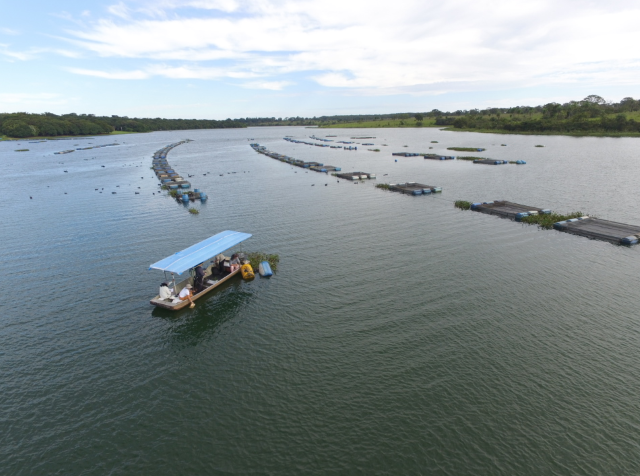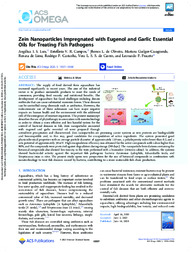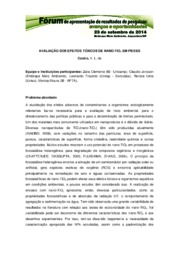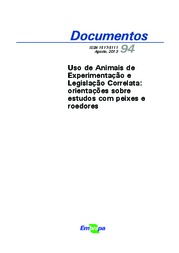Zein nanoparticles and eugenol and garlic essential oils can replace antibiotics in the treatment of fish diseases
Zein nanoparticles and eugenol and garlic essential oils can replace antibiotics in the treatment of fish diseases
Despite the supply of food derived from aquaculture having significantly increased over the past years, the development of aquaculture faces challenges such as the occurrence of diseases that may lead to higher decrease in growth and death rates and thus substantial economic losses with the reduction of fish market value. The diseases are usually controlled with chemicals and antibiotics such as oxytetracycline, florfenicol, amoxicillin, and erythromycin.
However, the researcher from São Paulo State University (Unesp) Leonardo Fraceto explains that the indiscriminate use of such substances may lead to large negative results with impacts on human health and the environment with the outbreak of resistant microorganisms, which start to appear in wastewater streams from farms or agroindustrial plants and can thus be transferred to food crops or surface waters.
"Essential oils derived from plants are promising candidates to replace antibiotics and other chemotherapy agents in aquaculture, offering advantages including low environmental impact, low toxicity, and cost reduction for fish farmers," Fraceto believes.
Their low persistence results in the reduction of residues in fish, while their different action methods result in slower development rates of resistance in organism diseases. This research, funded by São Paulo State Research Foundation (Fapesp) project number 2017/ 21004-5, analyzed eugenol (1-hydroxy-2-methoxy-4-allylbenzene), which is the main phenolic compound of clove essential oil, and allicin, a compound present in garlic, both widely used due to their antibacterial activity.
Nonetheless, the Unesp postgraduate student Angelica Luis explains, "there are certain limitations regarding their applications on a large scale in aquaculture, especially due to their low water solubility, low stability, and high sensitivity to ultraviolet irradiation and high temperatures. Therefore, it is important to develop new technologies to overcome limitations in the use of essential oils."
According to Fraceto, nanotechnological techniques have shown potential to encapsulate and release essential oils. In this context, natural polymers have attracted great interest for the development of systems to release active agents such as zein, derived from maize protein, due to its ability to create low- cost flexible biodegradable films and hydrophobic resistant coverings, which provide protection against microbial attacks.
According to researcher Vera Castro from Embrapa Environment (Jaguariúna, São Paulo), "the research assessed phytotherapy associated with the use of nanotechnology, aiming to obtain a treatment that is more efficient and less harmful to the environment in comparison with traditional methods of bacterial disease control. Thus, zein nanoparticles were used to encapsulate the active principles of eugenol and garlic essential oils, forming biodegradable nanoparticles," she explains.
Such nanoparticles showed great physicochemical properties with high encapsulation efficiency for active compounds with values above 90%. They protected the compounds against degradation during the storage tested in up to 90 days. In addition, the systems showed bacterial activity against important pathogenic fish bacteria Aeromonas hydrophila, Edwardsiella tarda, and Streptococcus iniae in vitro. Another advantage is that the nanoparticle formulas containing botanical compounds showed lower toxicity in tests carried out with Artemia salina, which are small crustaceans that are used as bioindicators.
Such formulas, in addition to being viable and efficient, are great options that make the reduction of the amount of active agents possible and improve the stability of the natural compounds used.
Thus, the authors believe that this study opens up new perspectives for the use of botanical compounds combined with nanotechnology to treat diseases caused by bacteria in fish, contributing to a more sustainable production chain. The encapsulation, in addition to protecting the active ingredient from degradation, also contributes to higher efficiency. Although the results open up a new perspective for the development of an innovative product, a deeper study is necessary to identify if there are any non-detected damage in water organisms.
The full study is available here.
Cristina Tordin (MTb 28.499/SP)
Embrapa Environment
Press inquiries
meio-ambiente.imprensa@embrapa.br
Phone number: +55 19 99262-6751
Further information on the topic
Citizen Attention Service (SAC)
www.embrapa.br/contact-us/sac/




